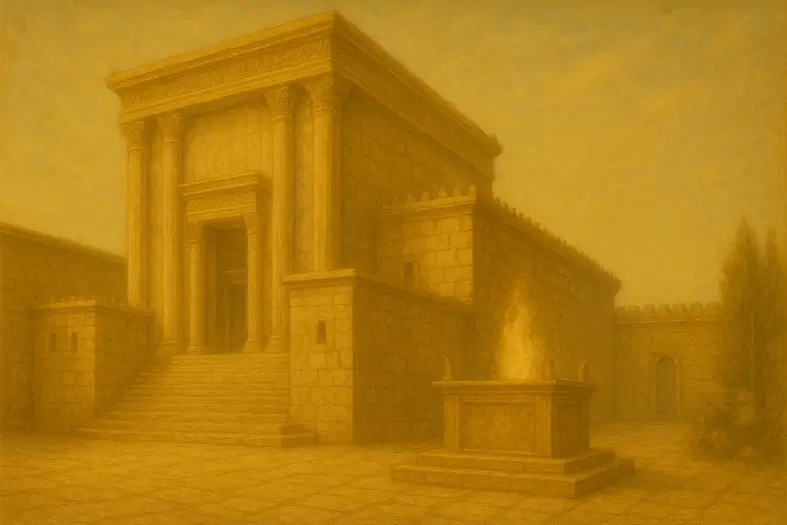


All Kohanim divisions must share equally in the Temple service during the pilgrimage Festivals.
This mitzvah ensures that all kohanim, regardless of their designated weekly rotation, share equally in the sacred service during the three pilgrimage Festivals — Pesach, Shavuot, and Sukkot. At these times, all twenty-four priestly shifts (mishmarot) served together in Jerusalem, and the offerings were divided equally among them.
The mitzvah reflects fairness, unity, and communal equality in the service of Hashem. It prevented disputes among the priestly families and guaranteed that all kohanim could participate in the spiritual elevation of the Festivals. It also highlighted the communal nature of these sacred days, ensuring that no kohen would be excluded from the Temple’s central role at the holiest moments of the year.
Commentary & Classical Explanation:


Represents the concept of spiritual intentionality, purity, and sanctity—set apart for a higher purpose.
Concerns the Beit HaMikdash, korbanot (offerings), and priestly service.
Mitzvot that uphold fairness, honesty, and moral responsibility. Justice is kindness structured — ensuring that society reflects G-d’s order through truth, equity, and accountability.
Mitzvot that strengthen communal life — showing up, participating, supporting, and belonging. Community is where holiness is shared, prayers are multiplied, and responsibility becomes collective.
Mitzvot related to the Jewish festivals — their observance, rituals, prohibitions, and spiritual significance. This includes Torah-commanded holidays like Pesach, Shavuot, and Sukkot, as well as rabbinic celebrations such as Purim and Chanukah.
Signifies awe and reverence toward Hashem—living with awareness of His greatness and presence.
Mitzvot that define and deepen the relationship between a person and their Creator. These include commandments involving belief, prayer, Shabbat, festivals, sacrifices, and personal holiness — expressions of devotion rooted in divine connection.

Dive into mitzvos, prayer, and Torah study—each section curated to help you learn, reflect, and live with intention. New insights are added regularly, creating an evolving space for spiritual growth.

Explore the 613 mitzvos and uncover the meaning behind each one. Discover practical ways to integrate them into your daily life with insights, sources, and guided reflection.

Learn the structure, depth, and spiritual intent behind Jewish prayer. Dive into morning blessings, Shema, Amidah, and more—with tools to enrich your daily connection.

Each week’s parsha offers timeless wisdom and modern relevance. Explore summaries, key themes, and mitzvah connections to deepen your understanding of the Torah cycle.